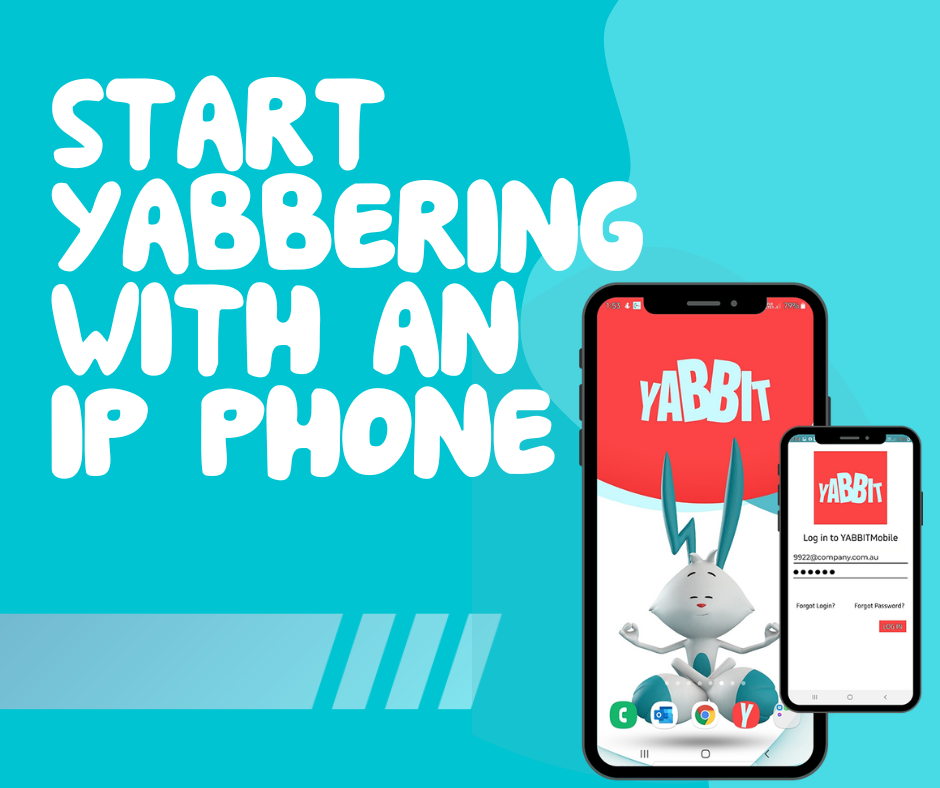In recent years, communication technology has undergone significant changes, and one of the most notable is business communications. The Internet fundamentally changed the way we communicate. One example is VoIP, or Voice over Internet Protocol, a technology that allows voice communication to be transmitted over the internet instead of traditional telephone lines. Let’s explore what IP phone systems are and how they work.
What is an IP phone system?
An IP phone system is a device that enables a phone to use IP technology to make calls. It can be in the form of hardware, like an actual phone or a softphone, which is your computer or mobile device. It takes the voice signals, converts those signals to data, and transmits the data over the network.
How Do IP phone systems Work?
IP phone systems involve protocols that work to reproduce telephone functions. Each protocol has a different job, but all work together in real-time.
Session Initiation Protocol
The purpose of SIP is to set real-time sessions between multiple callers over the Internet. With IP, this protocol is the signaling component.
What does SIP do?
- It initiates the call (dialing out)
- Establishes connection (call is picked up)
- Terminates connection (either person drops the call)
There are many more technical processes happening, but this is how SIP works with IP.
Real-time Transport Protocol
RTP is the delivery truck. It’s responsible for carrying voice audio. It carries the digital voice audio data, like goods in a trailer, to and from recipients during the call. There are codecs that convert the compressed data to uncompressed audio so that it can be heard by the callers. Without RTP, you might just get a bunch of garbled noise.
Call codecs impact call quality. For high quality audio, most IP providers use the G.722 audio codec.
IP and Transport Protocols
IP calls use protocols for transmitting data. When we connect to the Internet, we use TCP/IP, which is Transmission Control Protocol/Internet Protocol. IP uses TCP and User Datagram Protocol (UDP). Those are the protocols that transmit the data.
It travels in packets using the IP network. Think of TCP and UDP as the envelopes of IP.
Transmission Control Protocol
- Used for accuracy
- Data integrity check
This is why TCP is most common in Internet traffic. It deals with failures in transmission and knows how to check for available networks.
User Datagram Protocol
UDP is kind of like Dash, Yabbit’s mascot. It’s designed for speed. It doesn’t necessarily require a connection. It gets the data to and from as quickly as possible and doesn’t check for errors and quality. It’s best to use both protocols.
Types of IP phone systems

Desk IP Phones
Probably the most common. They look like any standard phone and are connected to computers or routes through an Ethernet connection. An Ethernet connection is more reliable than wireless. They have large LCD screens for menus display. Some phones are enabled with touchscreens. Yealink, Polycom, and Cisco are some of the popular IP phone manufacturers.
Computers and Mobile Devices
Your desktop and mobile devices can be used as IP phone systems. Install the app of your provider, and you get the functionality of the phone without having to buy it. Mobility is important in today’s business world, and the flexibility of having your business phone on your device means you don’t need to be tied to your desk all day. Answer business calls on your device or seamlessly switch from your desk phone to your mobile device.
What is the difference between an IP phone system and a traditional phone system?
The traditional phone system still uses copper wires that connect to hardware on-premises called the Private Branch Exchange (PBX). It’s clunky equipment that allows the phone to connect to all extensions. It routes all calls and makes sure they get to the right place.
IP, as we have mentioned, uses the Internet to allow users to make calls. All you need is an Internet connection or cellular data connection.
Yabbit and IP Technology
At Yabbit, we’re big believers in IP technology and think the traditional phone system is on its way out. We want to make technology fun and want you yabbering to all your colleagues without having to worry about dropped calls or outages. Come down the Yabbit hole with us, and let’s get the conversation started on how we can improve your business’s phone system.

